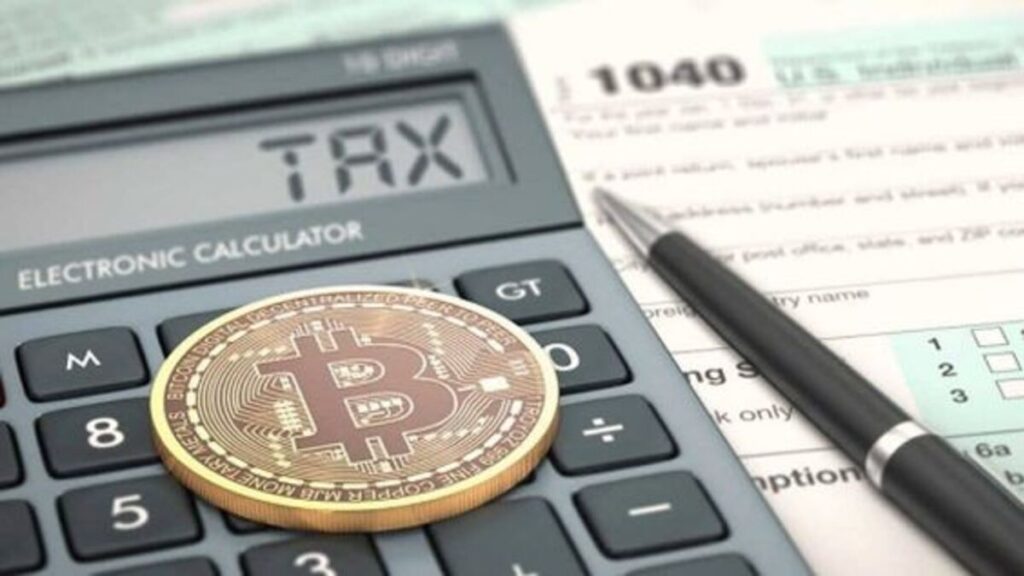Bitcoin has seen a good rise of 50% this year, which has made many people with no pre-existing interest in crypto trading have one.

With some new rules, federal reserve cuts, and the November elections sure to influence the crypto-trading world in the second half of the year, experts believe that every investor and trader should know a couple of things about cryptocurrency tax policies.
Bitcoin
Bitcoin is the first decentralized cryptocurrency that is now legal tender worldwide. It is abbreviated as BTC or with the sign ₿ and was invented in 2008 by Satoshi Nakamoto, an unknown man. Its use as a currency started in 2009 when it released its open-source implementation.

It also became a legal tender in El Salvador in 2021. Today, it is mainly used as a store of value and not as much as a unit of account or a medium of exchange.
Bitcoin at $70K Again
This year, the price of Bitcoin has surged and is now hovering around $70,00 again. According to Coin Metrics, the price of Bitcoin has been fluctuating, moving from $69,982.00 to below $67,000 towards the end of the month.

This is significantly lower than the record high of over $73,000 in the middle of March. Therefore, investors are concerned about their Bitcoin investments and are considering their next moves.
Federal Reserve Meetings
In June, the Federal Reserve reportedly held meetings to discuss federal cuts in the second half of the year. This is in a bid to further reduce inflation in the country and to help citizens who are currently struggling to afford basic items.

The reports say that the Federal Reserve might carry out one cut in 2024 and two other cuts in 2025. However, this can also impact the price value of bitcoin and cause it to fall with the cuts.
ALSO READ: Save £109 a Year on Water Bills With a New Toilet: Some Homes Waste up to £300 Each Year
The Election and Its Impact
The Federal Reserve is not the only factor that can negatively or positively affect the price of Bitcoin in the coming months. The upcoming November U.S. presidential elections will also have a huge impact on the price of the crypto coin.

The different parties on the ballot have different views on cryptocurrency, and the fate of the crypto world will be decided by who wins in November.
Trump’s Comments
Knowing this, former president and Republican presidential candidate Donald Trump gave a keynote speech at the June Bitcoin Conference in Nashville. “For too long, our government has violated the cardinal rule that every bitcoiner knows by heart: Never sell your bitcoin,” Trump said.

“If I am elected, it will be the policy of my administration, United States of America, to keep 100% of all the bitcoin the U.S. government currently holds or acquires into the future,” Trump said.
Kamala’s Possible Shift
On the other hand, investors are unsure about Vice President Kamala Harris’ stance on cryptocurrency. After entering the presidential race after President Joe Biden dropped out, investors are curious to see if Harris will outline a new policy for her campaign or pivot from the crypto scrutiny led by Securities and Exchange Commission Chair Gary Gensler and Sen. Elizabeth Warren.

Therefore, the future of cryptocurrency in the country will be quite unclear for most of the second half of 2024.
Crypto Taxes
Since people are unsure how things will go in the coming months, it is essential to understand cryptocurrency and the taxes involved.

Since cryptocurrency is a form of trading, capital gains or taxes are charged for trading a coin or making a profit, depending on how long you have had the asset. Those who want to enter the crypto trading world also need to understand this.
Net Investment Income Tax
If you hold crypto for over a year, you will qualify for long-term capital gains of 0%, 15%, or 20%, depending on your taxable income. Some really high earners could also have to pay an extra 3.8% levy, which is known as a net investment income tax.

Therefore, the amount of capital gains or income you will see as an investor or crypto trader depends on how long you have had assets.
Capital Gains and Taxes
Those who have been trading for a year or less are not totally without capital gains and income taxes, either. They have short-term capital gains or regular income taxes that will apply to them.

According to Adam Markowitz, an enrolled agent at Luminary Tax Advisors in Windermere, Florida, “Your gain is the difference between your original purchase price, or “basis,” and the asset’s value when you sell or exchange it — and without establishing basis, the IRS assumes it’s zero.”
Possible Mistakes
Sometimes, mistakes can occur while reporting capital gains to the Internal Revenue Service (IRS). Therefore, taxpayers must be very conscious of what they are reporting to avoid trouble and fines.

“The burden of proof is on the taxpayer to know what they paid,” Markowitz explained, noting that it can be very challenging for investors and traders to keep track. Some don’t know what counts as a sale and often make mistakes.
ALSO READ: Bitcoin Hits New Milestone, As It Was Recently Valued At $72,000
New Crypto Rules
In June, the U.S. Department of the Treasury and Internal Revenue Service (IRS) released the final guidance for digital asset brokers, adding new clauses and rules, including mandatory yearly reporting.

Starting in 2026, digital currency brokers will be required to begin reporting their gross proceeds from sales from the previous year via Form 1099-DA. By 2027, they must include a cost basis for some specific asset sales for 2026.
Time To Adjust
Furthermore, the IRS released a revenue procedure that same month and noted that crypto investors can still establish a “reasonable allocation” before January 1st, 2025.

Andrew Gordon, a tax attorney, certified public accountant, and president of Gordon Law Group, agreed with this new rule, saying, “Even in the current year, in 2024, as you’re selling tokens, it may make sense to speak to a tax professional about how you can specifically identify or allocate cost basis to those sales.”
You Might Also Like:
Cathie Wood Offloads $25 Million Worth of Underperforming Tech Stock
McDonald’s Might Have to Leave California

